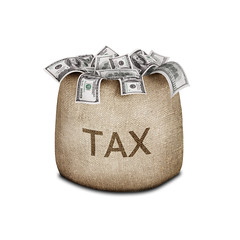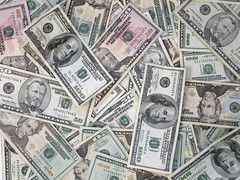8-2.2 Summarize the response of South Carolina to events leading to the American Revolution, including the Stamp Act, the Tea Acts, and the Sons of Liberty.
| 3075342185 | The Stamp Act | This was passed by the British Parliament on March 22, 1765. The new tax was imposed on all American colonists and required them to pay a tax on every piece of printed paper they used. Ship's papers, legal documents, licenses, newspapers, other publications, and even playing cards were taxed. The most important tax imposed by Parliament was imposed by this tax. |  | 0 |
| 3075342186 | The Tea Acts | The policy ignited a "powder keg" of opposition and resentment among American colonists and was the catalyst of the Boston Tea Party. It was not, in itself, a tax. |  | 1 |
| 3075344108 | The Sons of Liberty | In Boston in early summer of 1765 a group of shopkeepers and artisans who called themselves The Loyal Nine, began preparing for agitation against the Stamp Act. This group played a significant role in enforcing the boycotts through persuasion and intimidation. |  | 2 |
| 3075368256 | Cause: the attempt by the British crown and Parliament to impose taxes on the colonies in order to pay for the French and Indian War. | Effect: the events leading to the American Revolutionary War. |  | 3 |
| 3075377709 | British King or Parliament | Colonists believed it was the right of their colonial assemblies to impose taxes, not the prerogative (right) of the ... |  | 4 |
| 3075391299 | indirect taxes | Taxes paid by the merchants, not directly by the colonists. |  | 5 |
| 3075413997 | "No taxation without representation" | The colonists' rally cry. Colonists protested because they did not have their own representative in Parliament. They believed that they had no colonial voice in Parliament. |  | 6 |
| 3075421047 | Parliament | The British Government |  | 7 |
| 3075427493 | Why were the colonists upset with Parliament? | Colonists wanted the rights of their own colonial assemblies to impose taxes to continue. |  | 8 |
| 3075432118 | Cause: the colonists organized a Stamp Act Congress and a boycott on British goods | Effect: the repeal of the Stamp Act. |  | 9 |
| 3075439334 | Cause: British taxation without representation | Effect: the colonists organized the Sons and Daughters of Liberty |  | 10 |
| 3075454723 | The Daughters of Liberty | These women engaged in spinning bees and refused to buy British products, finding substitutes instead. |  | 11 |
| 3075461706 | Townshend duties | An indirect tax, taxing imported paint, paper, tea, and a variety of other goods |  | 12 |
| 3075471643 | After the Townshend duties, the colonists were unwilling even to accept an import tax because ... | it was designed to collect revenue, not to regulate trade. |  | 13 |
| 3075481641 | Cause: the colonists boycott the Townshend duties | Effect: the Townshend duties were repealed except for the tax on tea. |  | 14 |
| 3075490065 | Boycott | to refuse to buy, use, or participate in (something) as a way of protesting |  | 15 |
| 3076795687 | The British East India Company | The Tea Act gave them exclusive rights to sell tea in the colonies because the East India Tea Company had financial problems and Parliament wanted to help the company. |  | 16 |
| 3076846415 | Cause: taxes are imposed under the Townshend Acts | Effect: Colonists boycott tea |  | 17 |
| 3076855725 | The Sons of Liberty feared that the availability of cheap tea would ... | threaten the effectiveness of the boycott. |  | 18 |
| 3076865261 | Boston Tea Party | In Boston they threw the tea overboard. Georgetown and Charles Town had smaller protests that were not as large as the Boston protest, but did not allow the tea to be sold. |  | 19 |
| 3076869892 | Cause: Boston Tea Party | Effect: Parliament's passage of what the colonists called The Intolerable Acts. |  | 20 |
| 3076888705 | Cause: The Intolerable Acts | Effect: Colonists sent delegates to a Continental Congress in order to address these |  | 21 |
| 3076901006 | Why did representatives from across the South Carolina colony met in Charles Town in 1774? | They met to elect representatives to the Continental Congress to be held in Philadelphia. |  | 22 |
| 3077262866 | General Committee of 99 | They governed the South Carolina colony instead of the governor. |  | 23 |
| 3077265213 | Henry Middleton | South Carolina's leader (president) at the Continental Congress. |  | 24 |
| 3077271760 | Non-importation and Non-exportation Agreement | established at the Continental Congress |  | 25 |
| 3077274344 | Rice Trade | South Carolina delegates to the Continental Congress successfully argued that this was essential to the survival of their colony, so it was allowed. |  | 26 |
| 3077385730 | Patriots, Whigs, Rebels, Revolutionaries, or Continentals | colonists who supported the Continental Congress and independence |  | 27 |
| 3077391916 | Tories, Loyalists, Royalists, or King's Men | Loyalists who remained loyal to the King and Great Britain |  | 28 |

